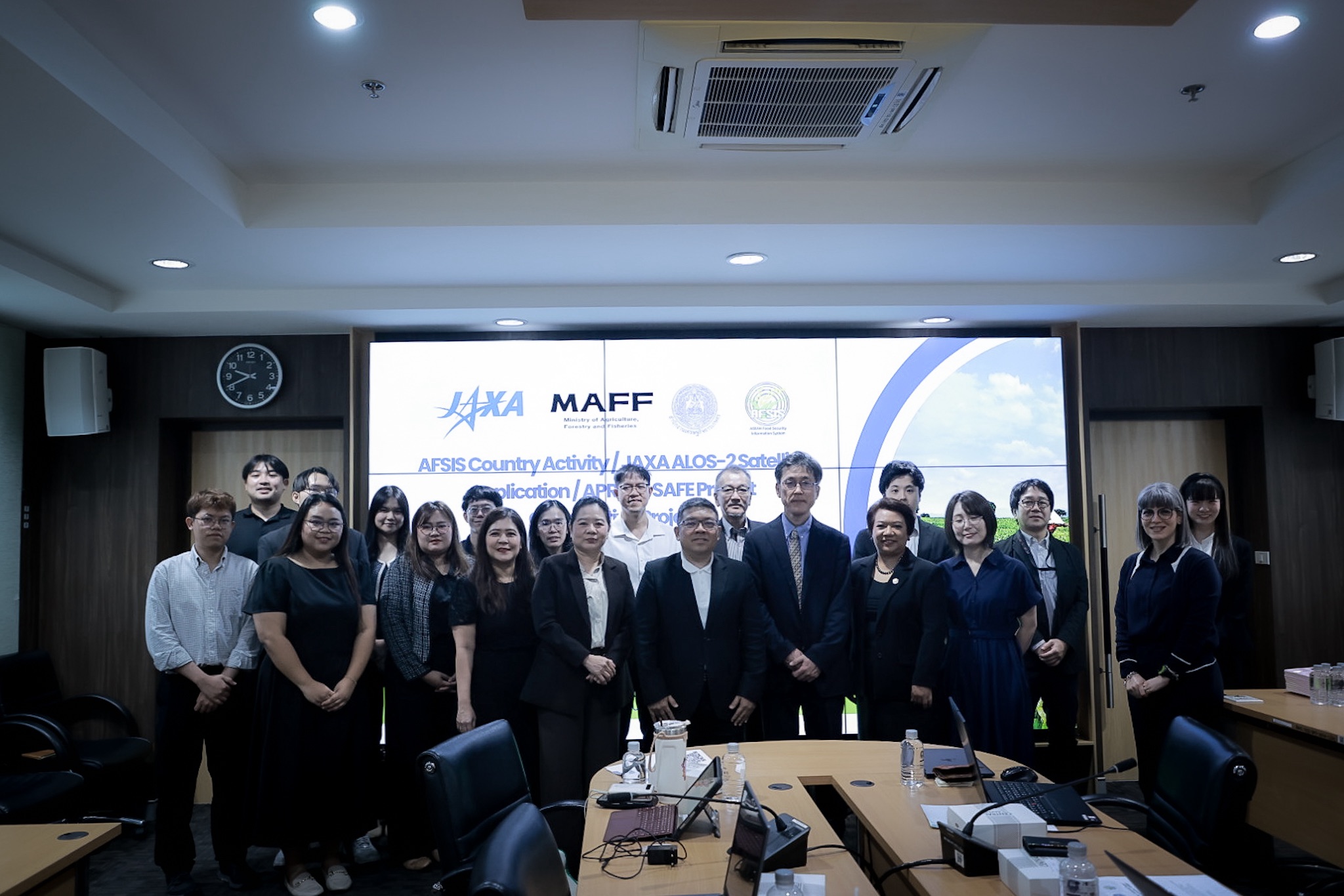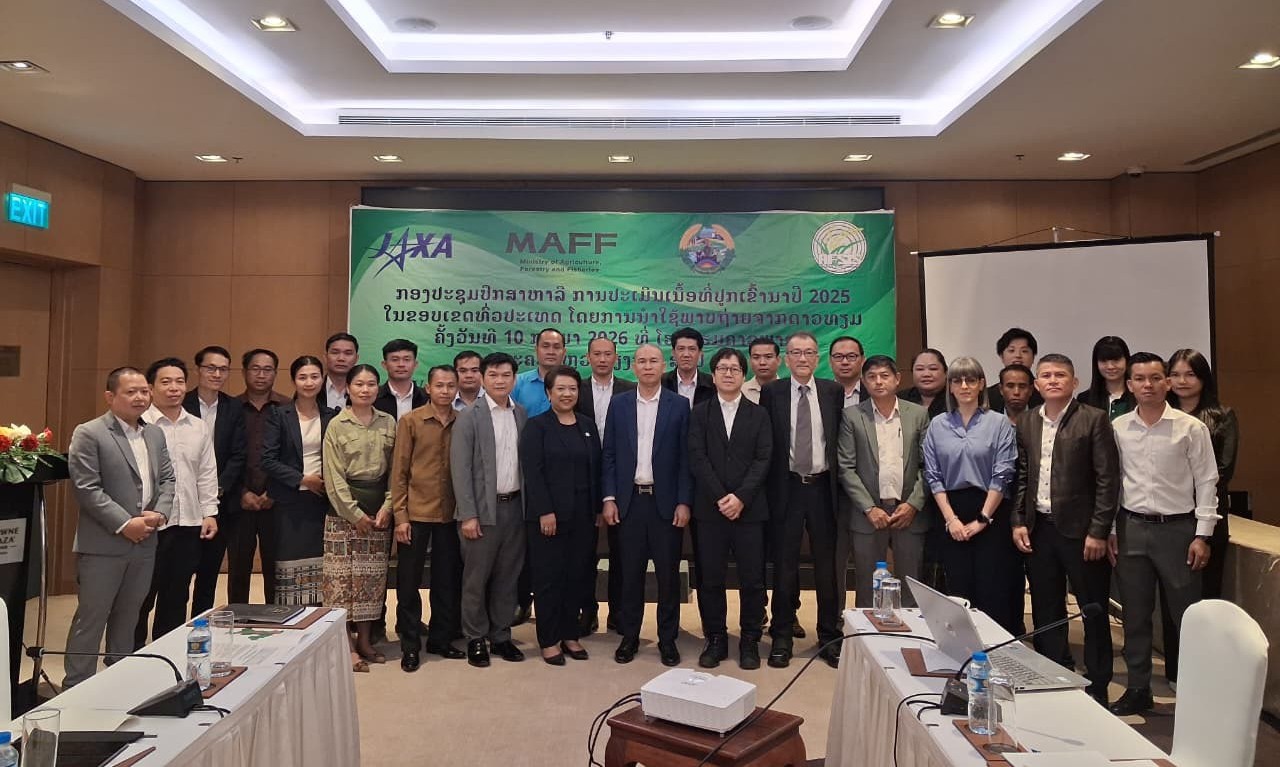.jpg)
Task Group 5 (TG5) – Asia RiCE (Agriculture and Food Security) Meeting which was a sectoral meeting under the 15th Asia-Oceania GEO (AOGEO) Symposium was held as an online meeting on 12 September 2022.
There were 19 participants from GEOGLAM, Japan Aerospace Exploration Agency (JAXA), Geo-Informatics and Space Tech Development Agency (GISTDA) Thailand, Asia Disaster Prediction Center (ADPC) Thailand, International Rice Research Institute (IRRI) Philippines, University of Tokyo, Japan, Indian Space Research Organisation (ISRO), Vietnam National Space Center (VNSC), The National Institute for Environmental Studies (NIES) Japan, and AFSIS Secretariat which the representatives were Dr.Waraporn Saelee, AFSIS Manager and Ms. Prodpran Lomthong, Project Coordinator staff had attended the meeting.
The TG5 meeting in AOGEO was organized annually with the objective to discuss the way forward to make full use of earth observation technologies (such as satellites) for agricultural production, particularly rice in the Asia-Pacific region, and a better outlook for regional food security and climate resilience.
During the meeting, Dr. Waraporn Saelee had the honor to present AFSIS project and the implementations in Rice Growing Outlook (RGO) activity which AFSIS has supported as an information hub to Asia-RiCE on GEOGLAM. Furthermore, Dr. Waraporn also shared the recommendation to keep continuous dialog with space community and related agencies for the use of satellite-derived agricultural information through human resource development activities.
The meeting ended successfully with great collaboration from all participants. The output in TG5 will be reflected to GEOGLAM for the G20 action plan and works in international and regional organizations.
.png)
.png)
.png)
.png)
.png)

On 12-13 February 2026, the AFSIS Secretariat, in collaboration with the Japan Aerospace Exploration Agency (JAXA), the Remote Sensing Technology Center of Japan (RESTEC), Ministry of Agriculture, Forestry and Fisheries (MAFF) Japan and the Office of Agricultural Economics (OAE), Ministry of Agriculture Cooperatives (MOAC), conducted a workshop conducted a workshop The Promoting Rice Planted Area and Production Estimation Using INAHOR and Space-based Technologies in Thailand at the Meeting Room 2, Innovation Building, 3rd FL, Office of Agricultural Economics (OAE)

The In-Country Workshop on Promoting Rice Planted Area and Production Estimation Using Space-based Technologies in Lao PDR was jointly organized by AFSIS Secretariat, JAXA, MAFF Japan, and MAE Lao PDR under the AFSIS-GIS and SAFE projects. The event was held in Vientiane with hands-on training on 9 February 2026 and a workshop on 10 February 2026.
.jpg)
On 13–15 January 2026, the Office of Agricultural Economics (OAE), Thailand, in collaboration with the Ministry of Agriculture, Forestry and Fisheries (MAFF), Japan, and the AFSIS Secretariat, conducted the 1st Meeting of Japan–Thailand Expert Dialogue on Agricultural Statistics. The meeting was held at the Office of Agricultural Economics and field survey activities in Chonburi Province.

On 3–4 December 2025, the ASEAN Food Security Information System (AFSIS) Secretariat participated in the ASEAN Plus Three Emergency Rice Reserve (APTERR) Table Top Exercise (TTX) held in Bandar Seri Begawan, Brunei Darussalam.